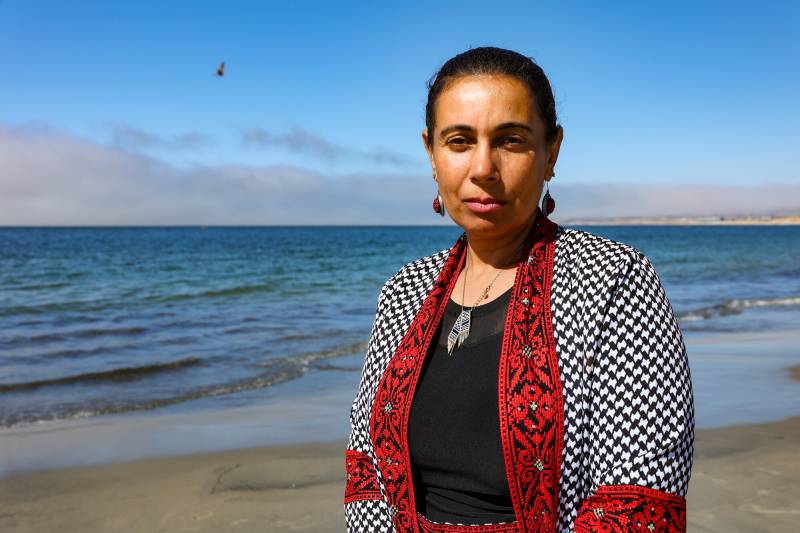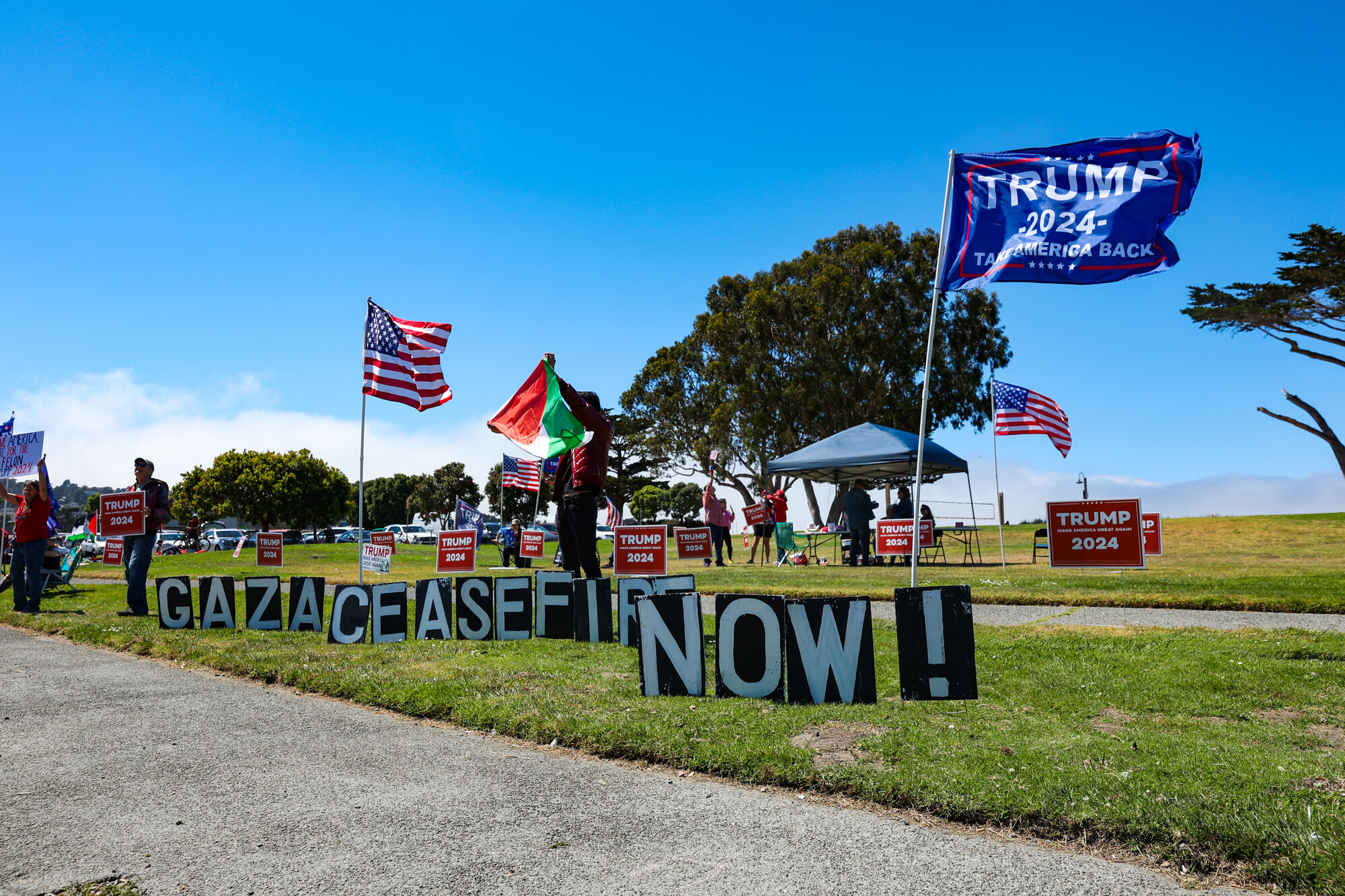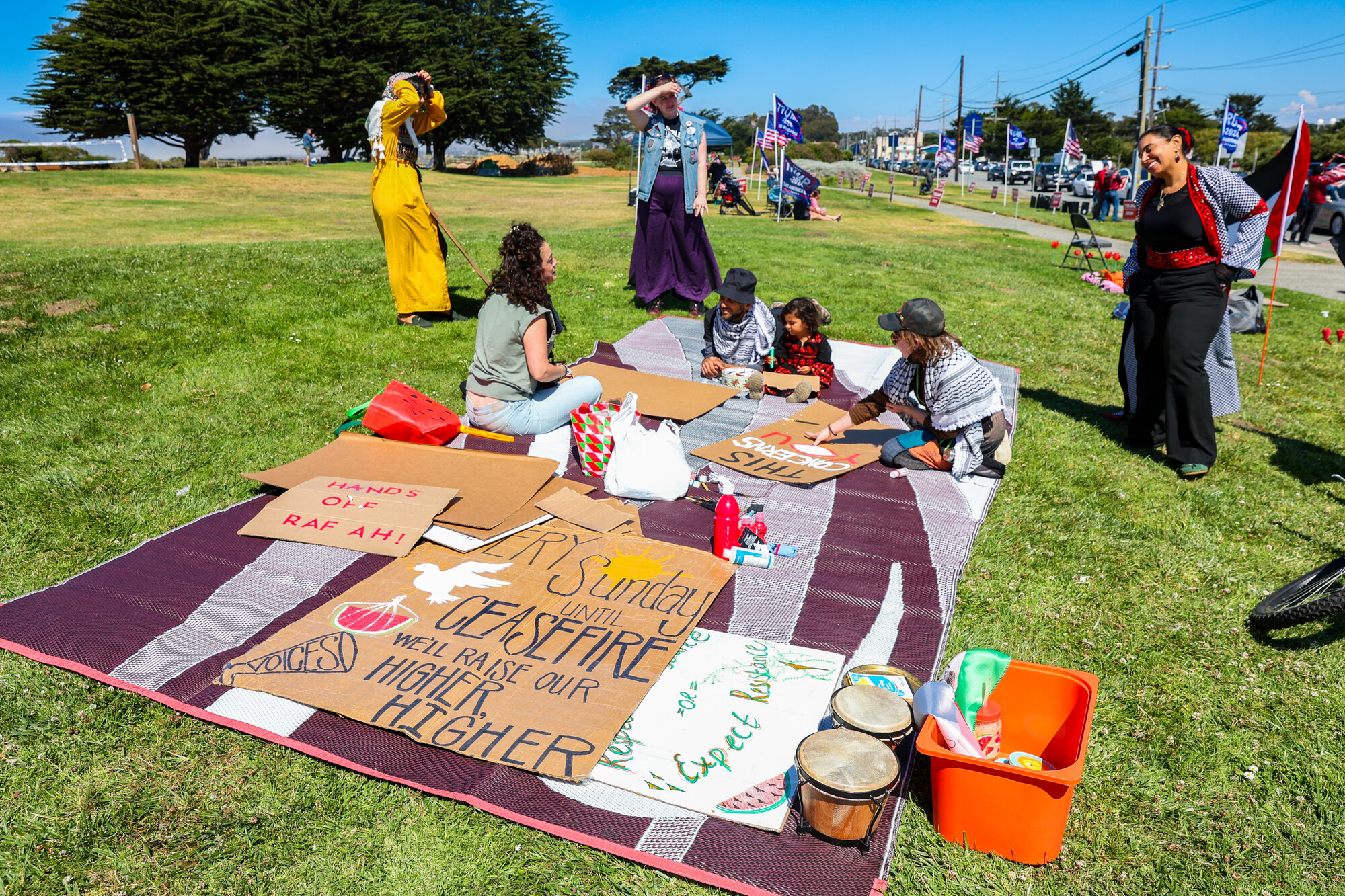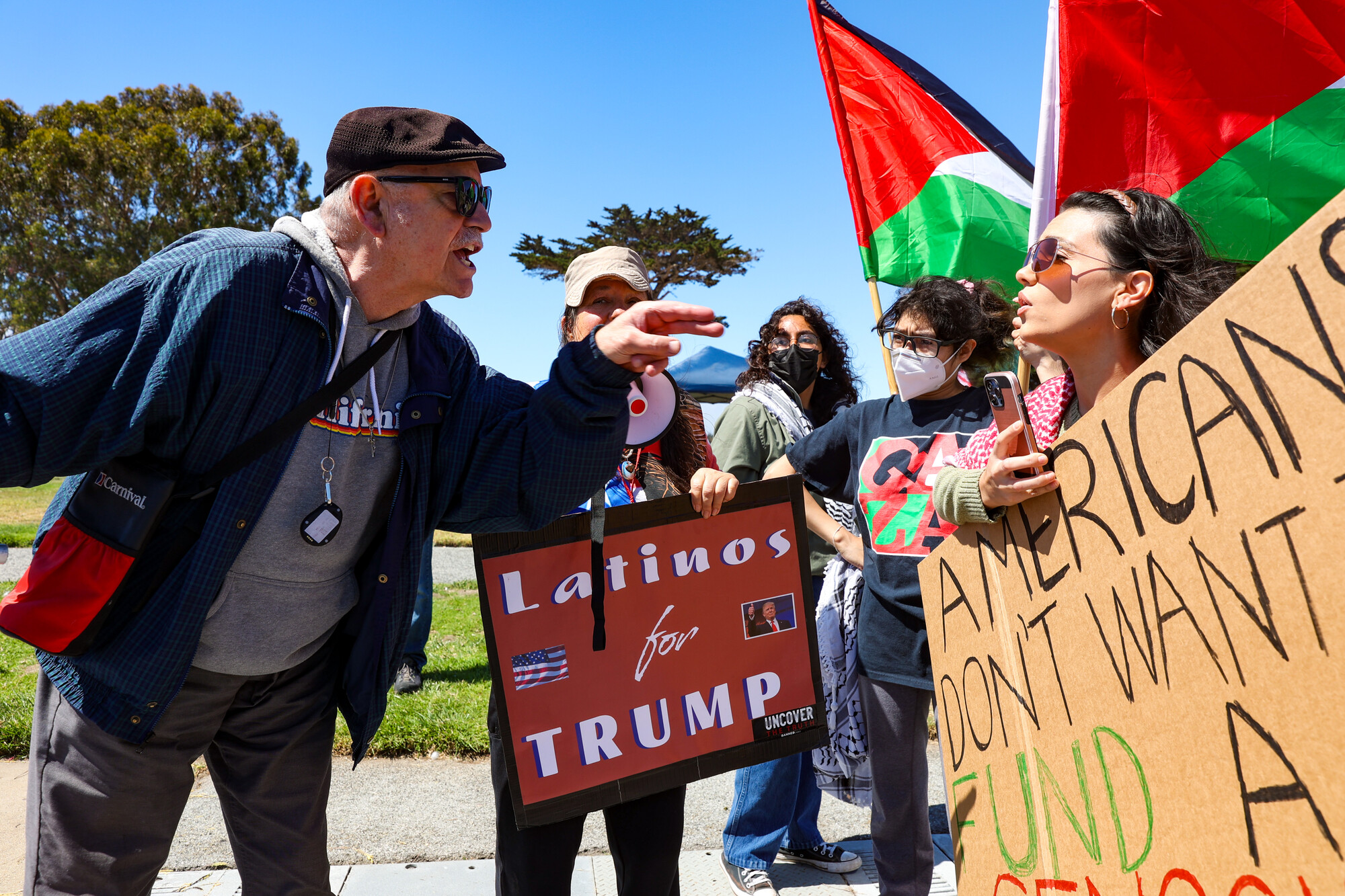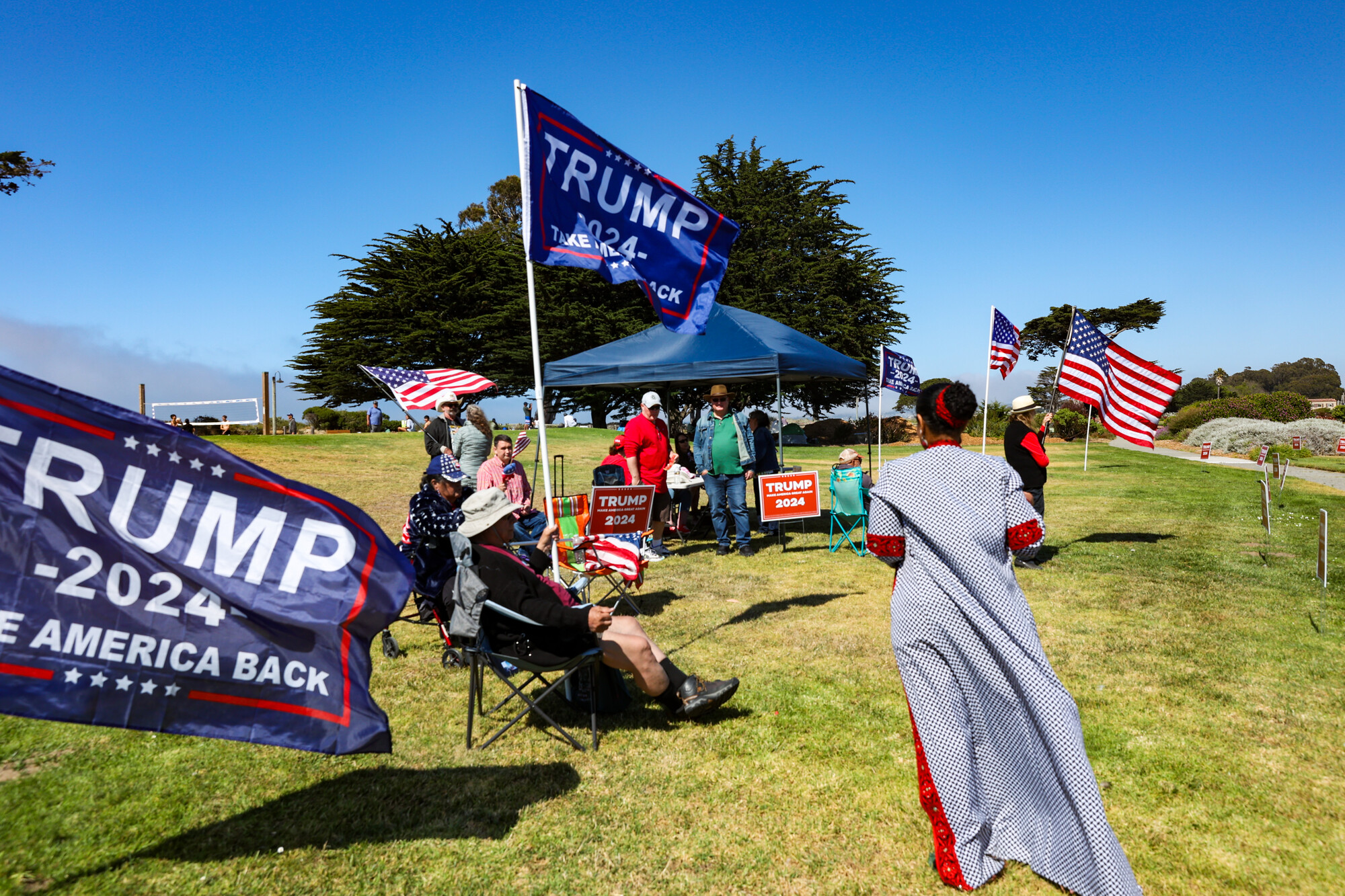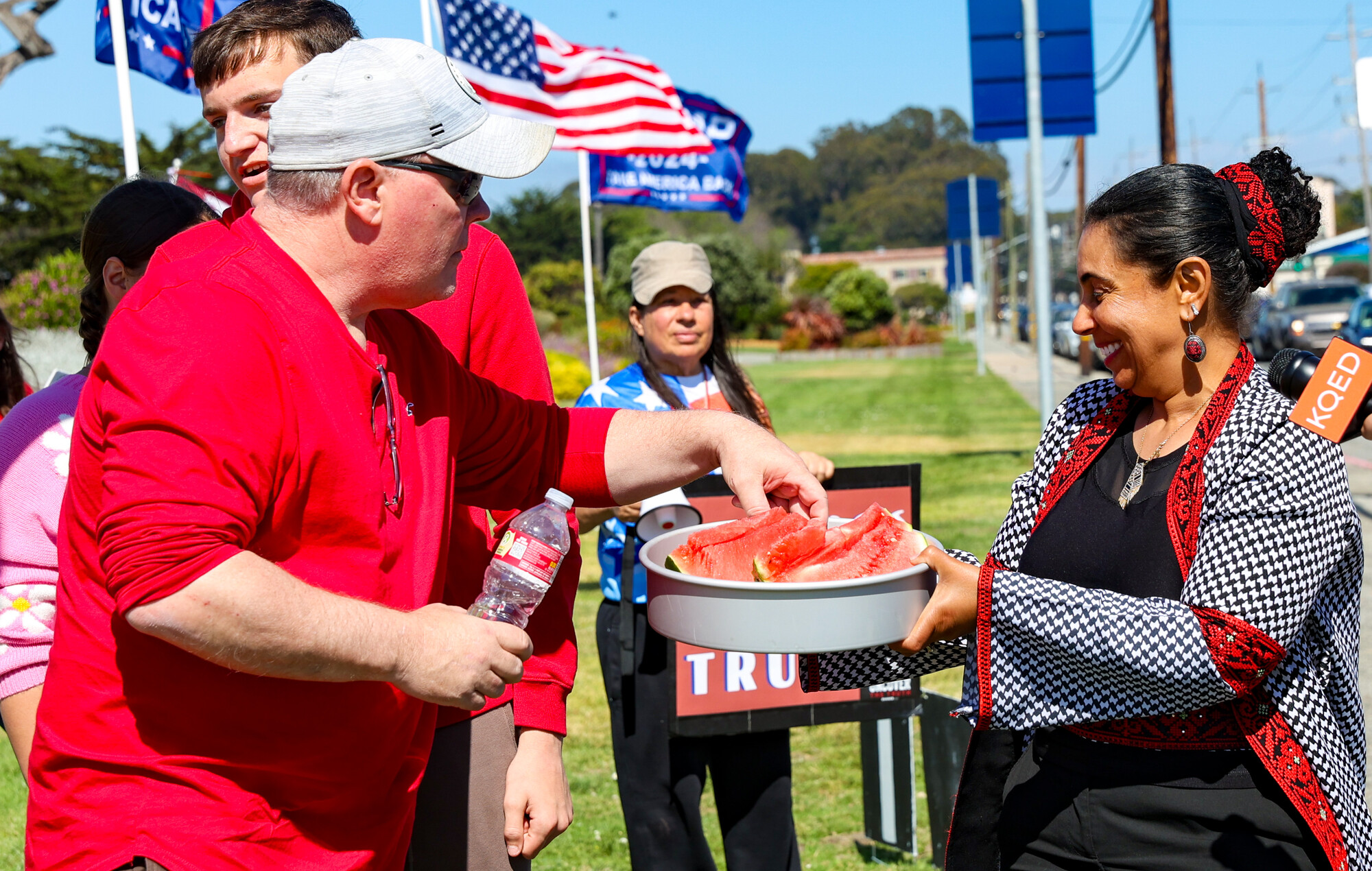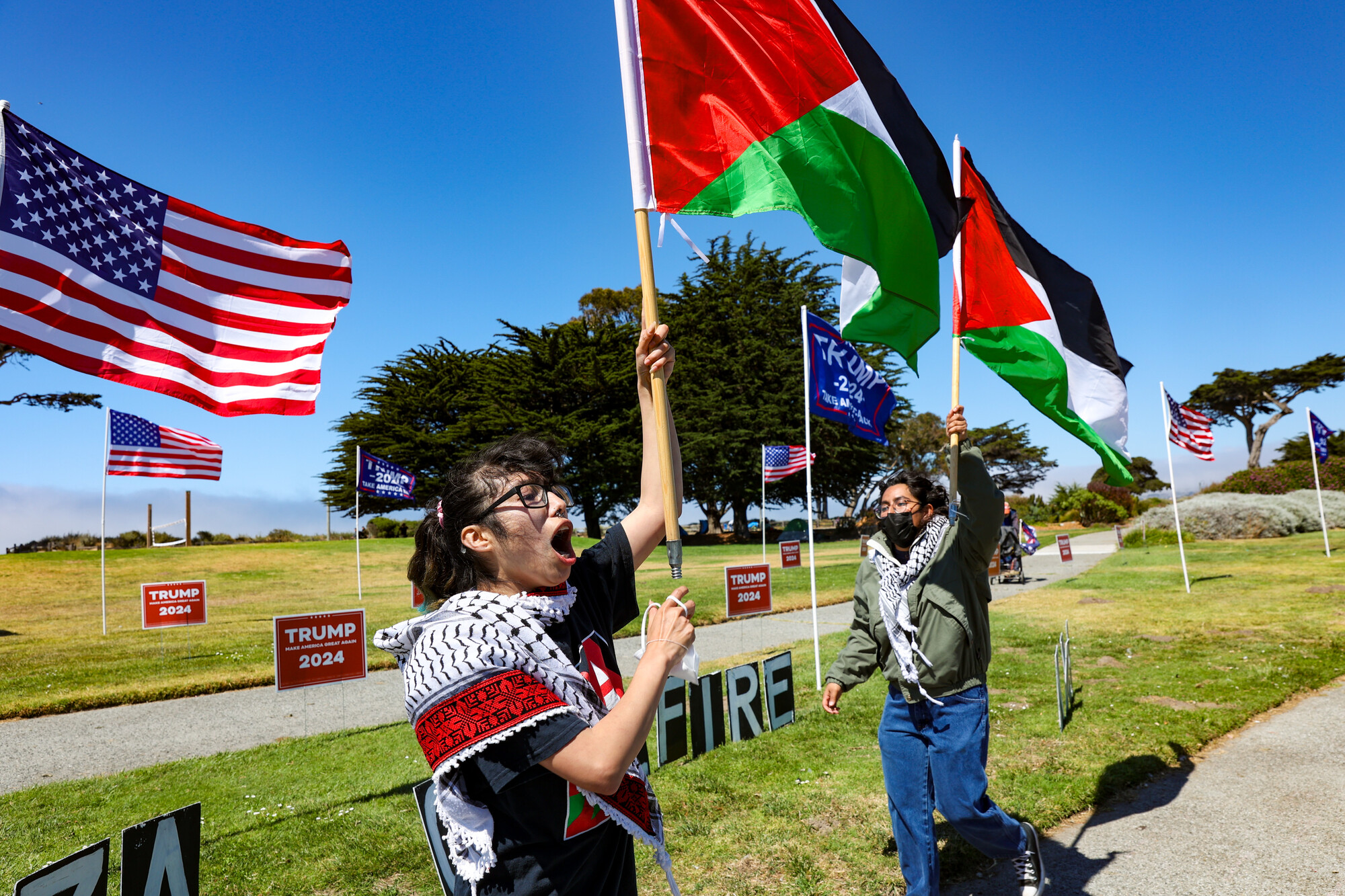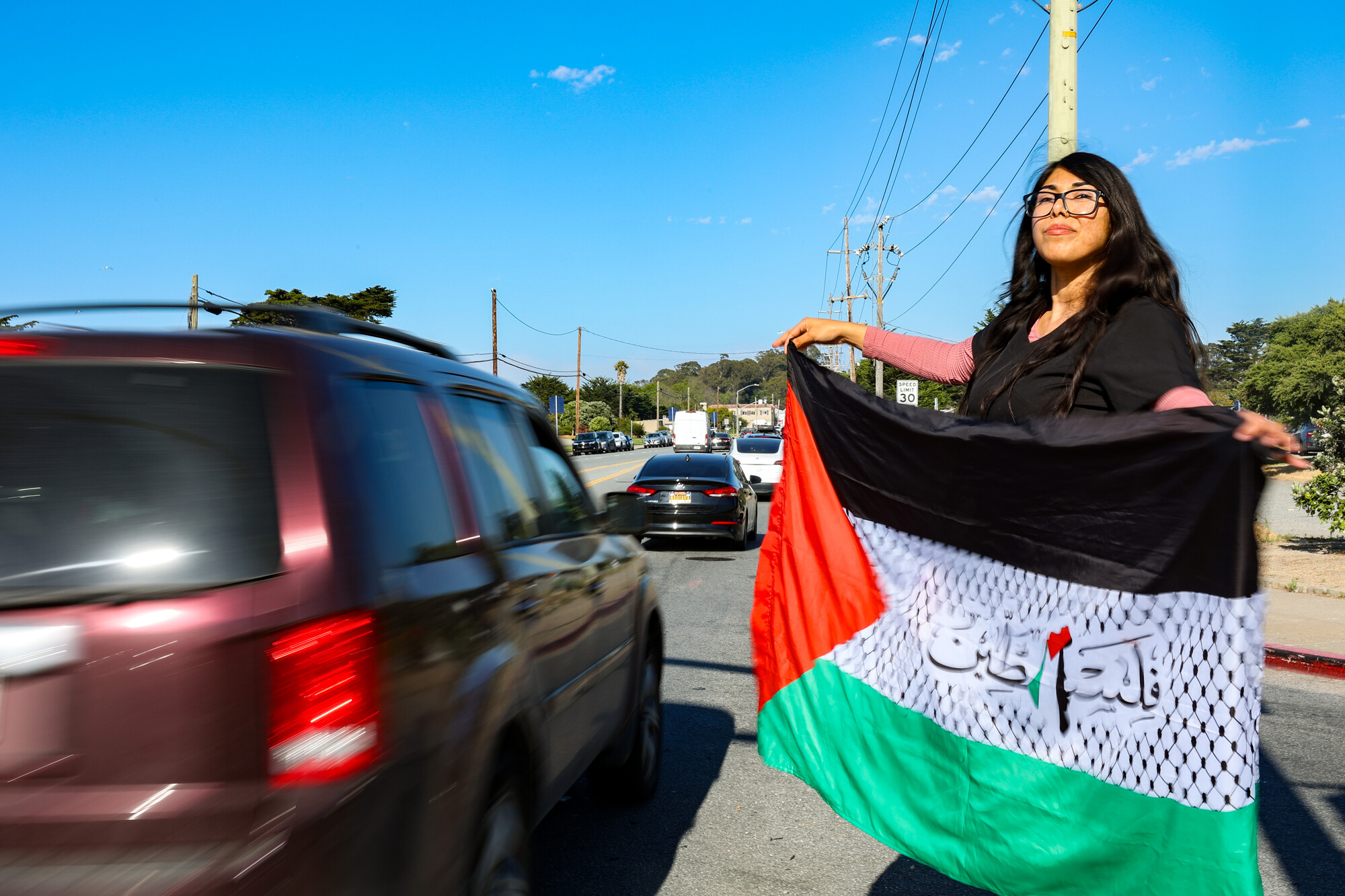You can see Rolla Alaydi’s tables almost every Sunday at Del Monte Beach in Monterey.
The tables are decorated with Palestinian flags that whip in the wind. There is a tray with little paper cups of coffee. Pins and stickers of Handala, a cartoon sketch of a young Palestinian boy, are for sale. So are keffiyehs, a Palestinian scarf.
The centerpiece is a long banner with an image of a young girl with downcast eyes. On the banner, a QR code to a GoFundMe titled, “My Family is Trapped in Gaza. Help Me Get Them Out.”
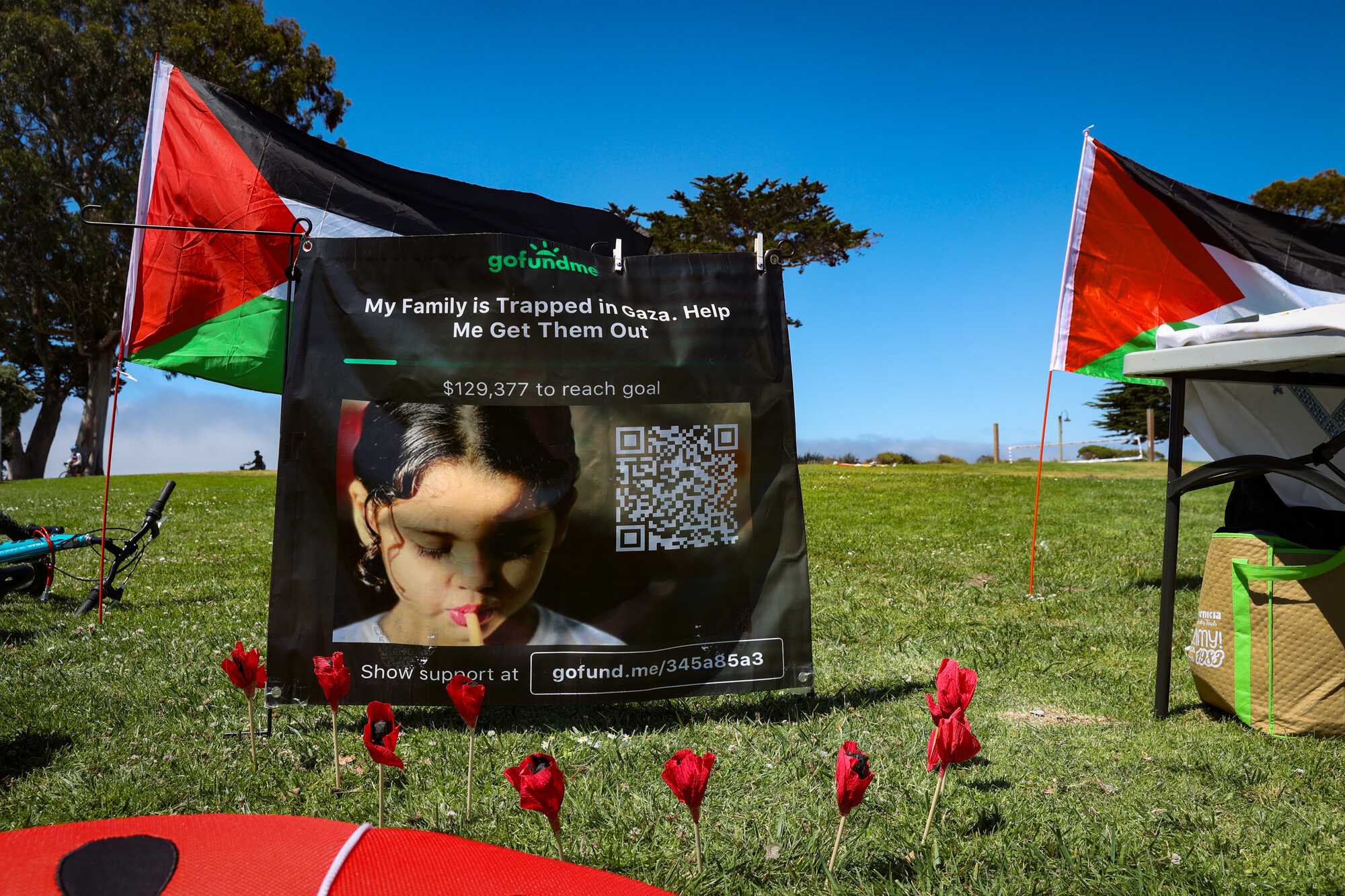
“I’m trying to keep hope and faith,” Alaydi told KQED last month. “I’m just having all the fear from the bombing, from the starvation, from the disease. They are still there, and every day is worse than the day before.”
According to the United Nations, more than 38,000 Palestinians have been killed and over 88,000 have been injured during the siege of Gaza. Nearly 2 million people — almost the entire population of Gaza — have been displaced.
The monthslong military assault began after the Oct. 7, 2023, attack in southern Israel by Hamas-led militants who killed roughly 1,200 people and took about 240 hostages, according to Israeli authorities. More than 100 hostages have been released or rescued.
Israeli forces have attacked aid workers and hospitals, exacerbating the humanitarian crisis that includes sickness and starvation. Israel’s bombardment has sparked protests demanding a cease-fire in the Bay Area and around the world.
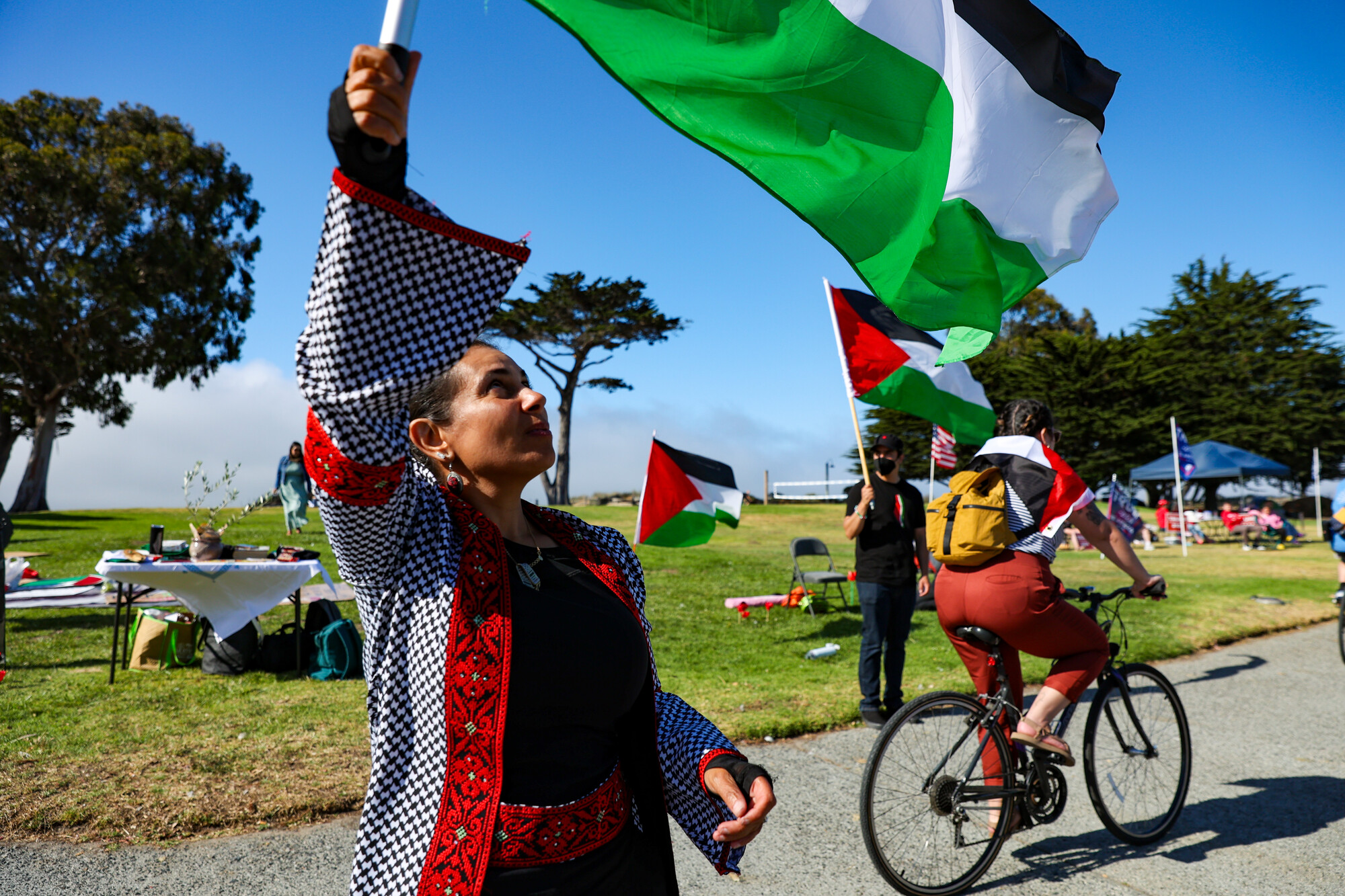
Alaydi’s family — 21 people, including 13 children — is in a refugee camp near the Egyptian border. Their family home was destroyed during the Israeli bombings. As of earlier this month, nearly 60% of buildings in the Gaza Strip have been damaged or destroyed, according to Decentralized Damage Mapping Group, a network of researchers analyzing the destruction.
“If they are not killed by a missile, the starvation is hunting them,” Alaydi told KQED in February. “Death is chasing them.”
For the last nine months, Alaydi, a Palestinian American and Pacific Grove resident, has been working with lawyers to get her four younger brothers and their families out of Gaza as the Israeli bombardment continues. In the Bay Area, the Palestinian diaspora has been trying to navigate the complex, frustrating process of getting their loved ones across the Gaza-Egyptian border.
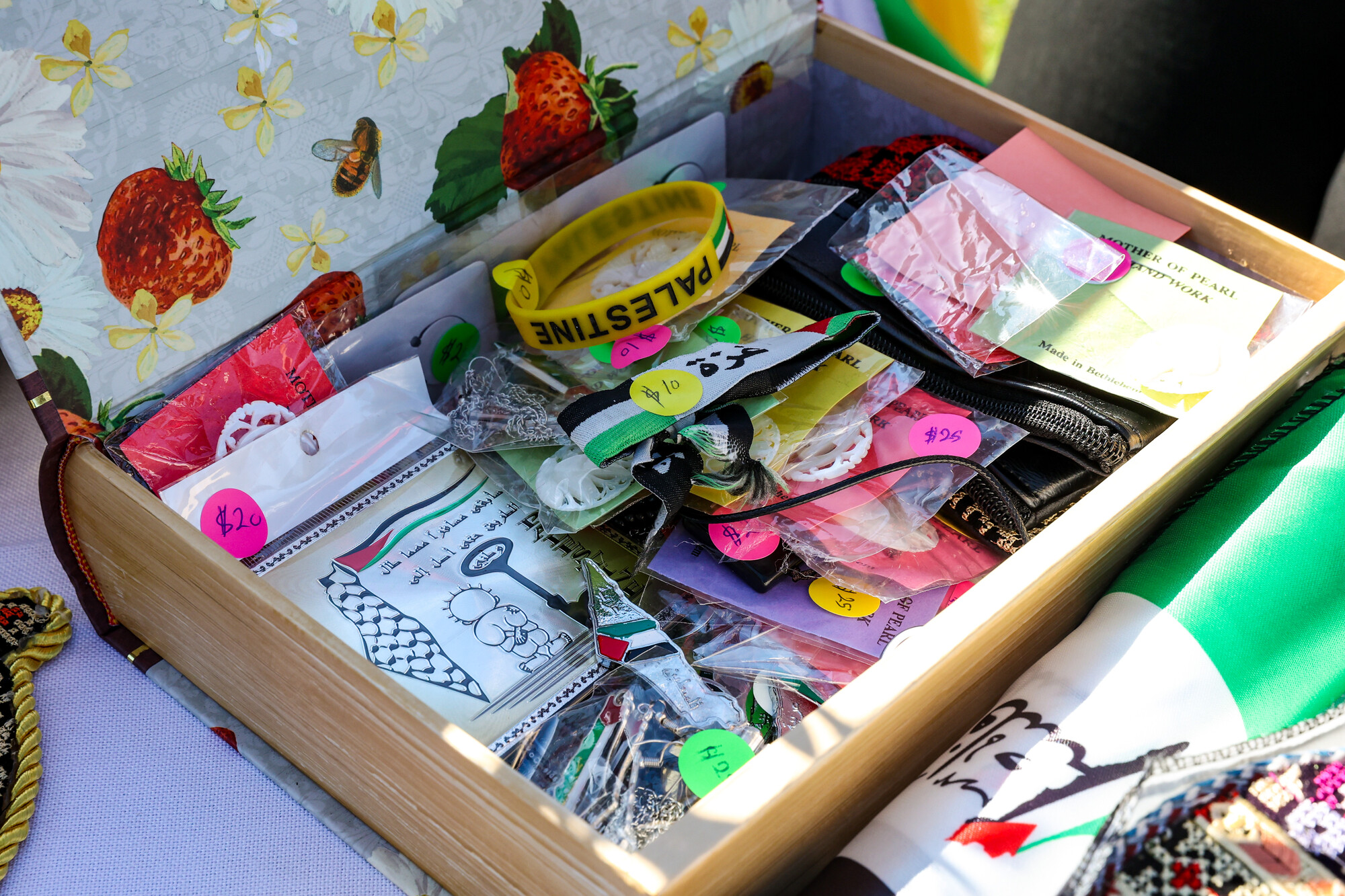
A network of volunteer lawyers assisting Palestinian Americans said Gazans need to get their name on a list to cross the border, which often requires the approval of the American, Israeli and Egyptian governments. In late April, Alaydi’s brothers were approved to cross on May 20. She flew to Cairo, Egypt, with a suitcase full of medicine, vitamins and chocolate for the children.
When she was in Egypt, she met recently evacuated Gazans and listened to their stories. In their children’s faces, she saw her nephews and nieces like Alma, the girl on Alaydi’s GoFundMe banner. It would have been the first time Alaydi met some of her relatives. Now, she wonders if she will be lucky enough to see them outside of a phone screen.
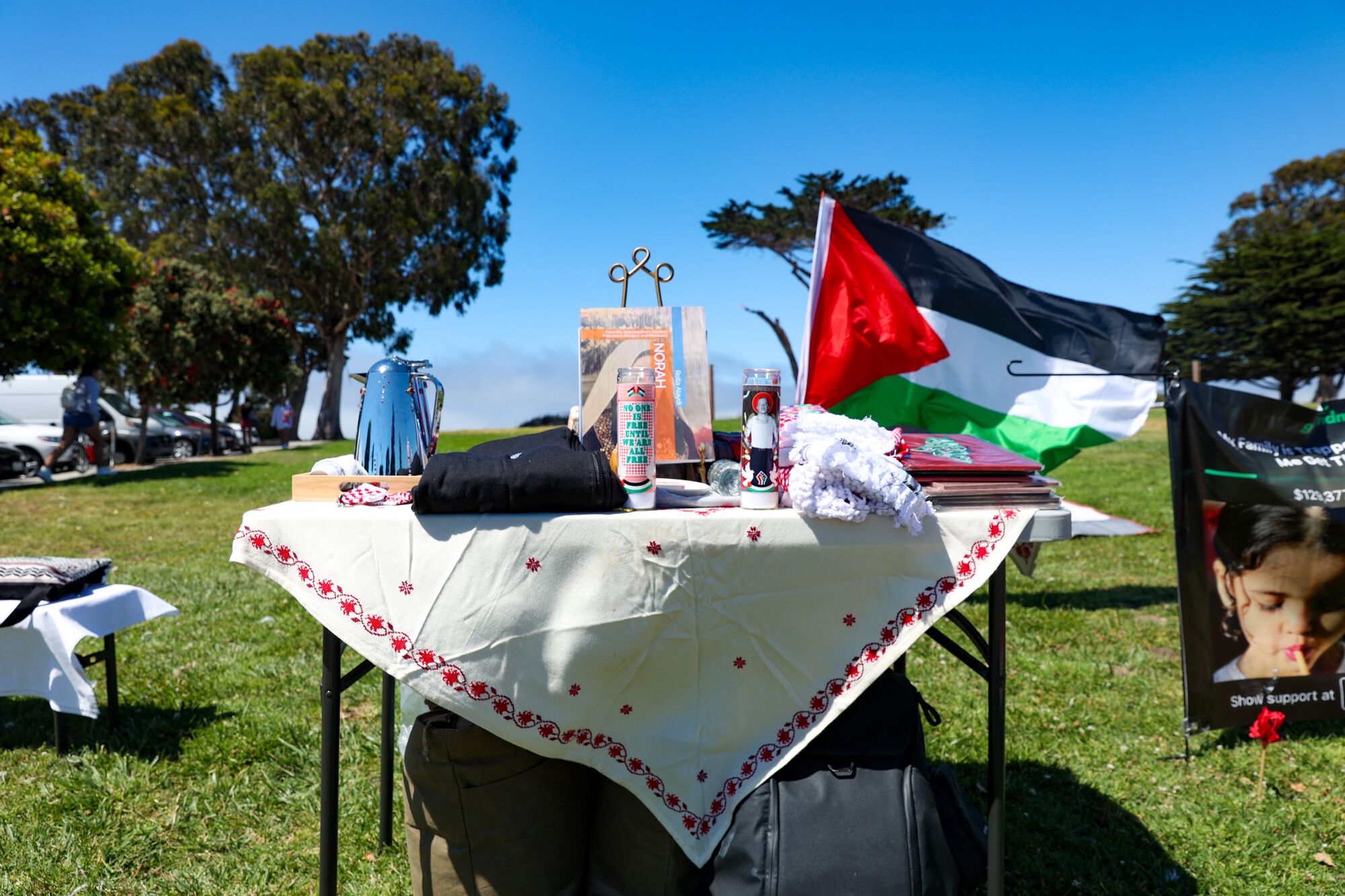
Israel began its military offensive in Rafah, a city in the southern Gaza Strip, on May 6.
The Egyptian border was closed.
“I did all this hard work, and I was about to reach something to be accomplished, and then I was not successful at all,” Alaydi said. “I’m just devastated.”
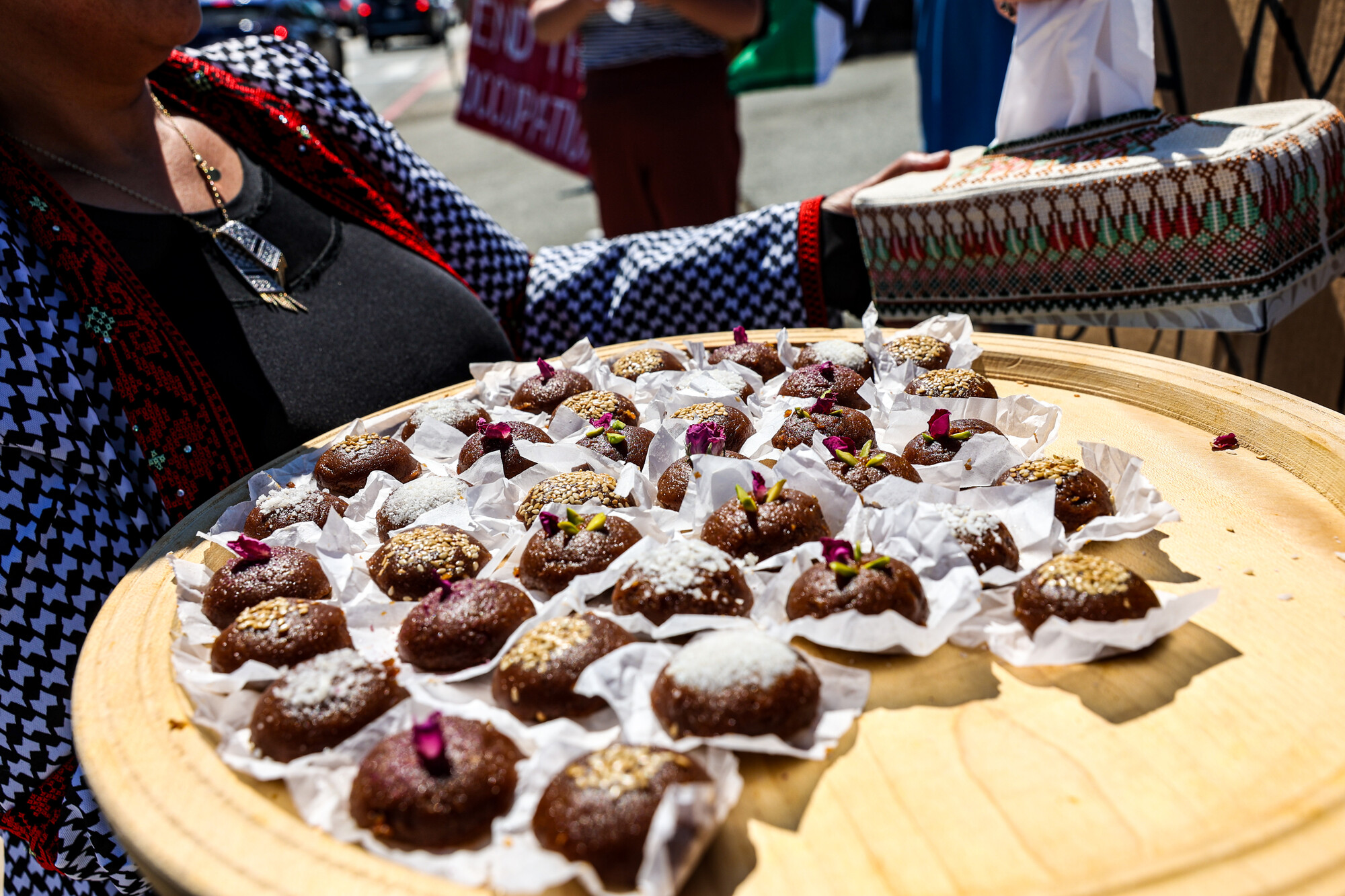
On May 28, she had to leave her family behind in an unpredictable siege with escalating attacks on refugee camps. Recently, the International Court of Justice, the world court in The Hague that was first established in San Francisco in 1945, ruled that Israel’s settlement policies in the Palestinian territories violated international law. In the non-binding ruling, the court said Israel must pay reparations to Palestinians for lost property and income. In response, Israel claimed that the questions put to the court were prejudiced.
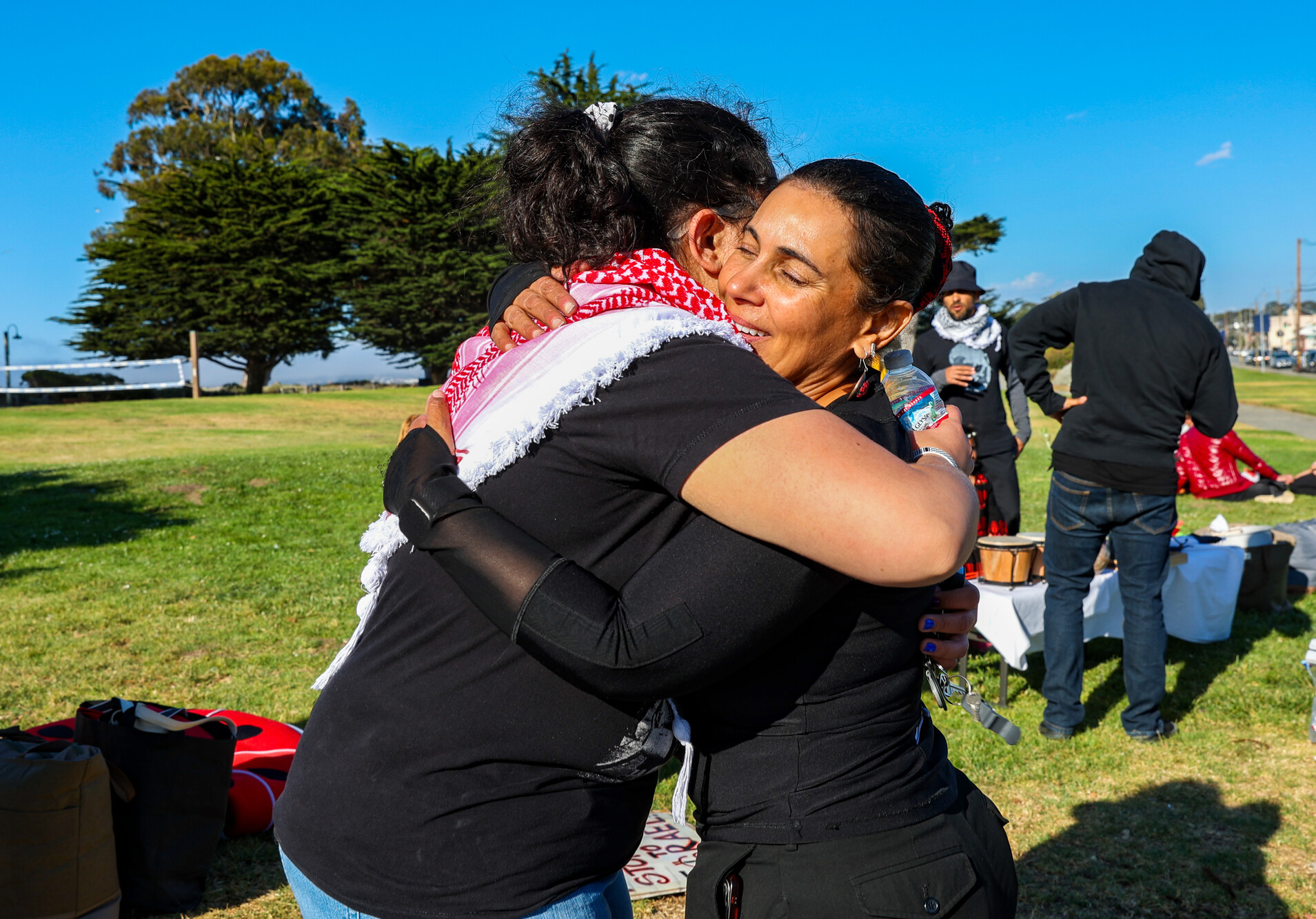
Alaydi said she has a hard time coping, especially in front of her teenage son.
“It’s just a heavy, heavy weight in your chest,” said Alaydi, a single mother. “You feel like a big rock sitting there. I cannot even cry in front of him because I don’t want him to hear me crying.”
Her respite from the heaviness is her Sundays at Del Monte Beach, where she displays Palestinian art and food, along with a book of her grandmother’s recipes and Barbie dolls dressed in traditional Palestinian clothing.
